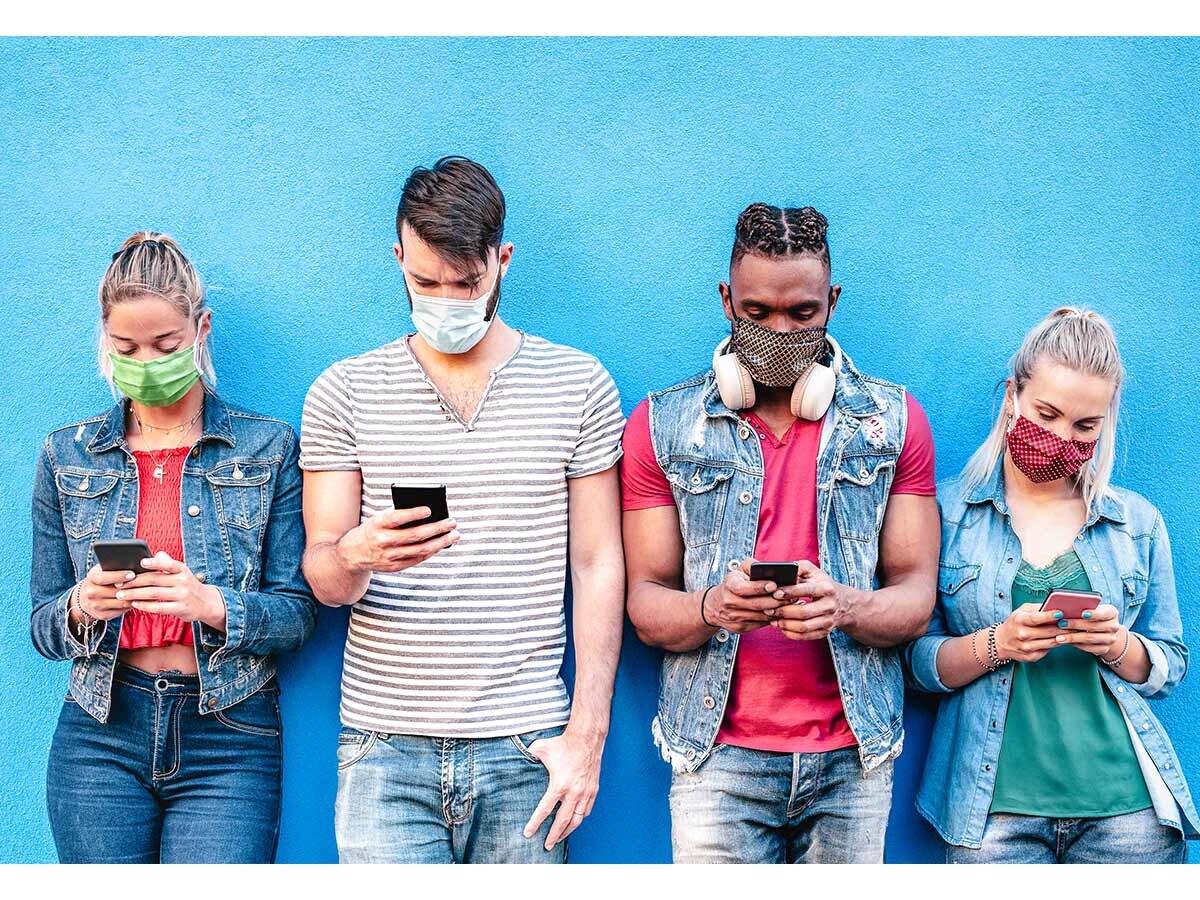In 2020, life changed very quickly for everyone.
Plunged into lockdown, the world as we knew it shut seemingly overnight. Shops and schools closed, entertainment ceased and the distance we had to commute from our beds to work became much shorter.
We quickly had to become more comfortable living with our own faces staring back at us on a screen. There was the great scramble for loo roll. For a terrifying moment, even the very concept of ‘fun’ was in jeopardy, as Zoom quizzes became the most exciting event in the calendar for millions.
A year on and the world is beginning to re-open. But even though we all had to adapt quickly to the ‘new normal’, for some groups, the change back might not be so swift.
Teenage angst
There is mounting evidence which suggests that young people are feeling pressured as we begin to reconnect with normality. New research from Appinio shows that almost three in five of Gen Z respondents felt anxious about lockdown lifting and returning to life as we knew it.
It’s important to consider the impact that lockdown has had on this generation. These are the formative years of your ‘adult’ social life. Most of us will remember going to cinemas, playing sports, the thrills of sneaking into bars and the excitement of those first parties.
Gen Z have had a largely different experience. According to research by Adobe into the UK’s content consumption habits, Gen Z spend a whopping 10.6 hours engaging with online content every single day. Millennials may have been the first digital pioneers – but Gen Z are the first true digital natives.
Lockdown will have only served to solidify these habits for many. These are people more comfortable in online environments, from TikTok to Instagram to Discord. Equally, they are more likely to feel uncomfortable and out of place offline.
This is a generation unlike any before. And brands must therefore be ready to take equally unprecedented action to reach them.
Research from Appinio shows that 54% of Gen Z are worried about being in large crowds and 52% are worried about catching COVID-19. Young people are also likely to be the final section of society to be vaccinated. Even as restrictions lift and the world opens, many young people may actively choose not to.
Marketing and mindfulness
COVID-19 has increased many of the pre-existing disparities in society. Brands must be conscious of how the pandemic, and the new landscape it has created, has changed attitudes among young people. Youth unemployment has risen as businesses look to cut costs, meaning that the levels of income and financial wellbeing among Gen Z is far below other demographics. These pressures should be front of mind for brands when communicating with this audience.
Brands can also attract the attention of young people by supporting and advocating for social causes. Appinio research found that 46% think that achieving equality is the most relevant political topic, followed by climate protection at 35%. So, although we know that 58% prefer funny content on social media, knowing what resonates on a more serious and personal level will help connect with this audience as long as brands remain authentic.
Brands must take a long-term view when engaging with Gen Z. This generation is already hugely influential in society, operating as meme-smiths and digital tastemakers, and this influence will morph into spending power as they mature. Winning favour and gaining trust of this audience now will stand brands in good stead in the long run.
Keep it snappy
Whilst widely rumoured research about shrinking attention spans has been proved false – it is clear that for Gen Z, short and snappy wins the race.
Our study found that 71% of GenZ say they use Instagram and 56% use TikTok, compared to just 35% who use Facebook, showing the vast differences in popularity. This is indicative of Gen Z’s preference for short-form video content, as this is a fundamental element of both Instagram and TikTok. Additionally, Snapchat still ranks highly among Gen Z, with 64% still using the app.
Life has changed a lot over the last year. Amidst the disruption, brands must keep track of young people’s attitudes and behaviours. They are impressionable and influential in equal measure. They may not be as loyal to certain brands, but they are more likely to give you something even more valuable: honest feedback.
The post-pandemic era will be uncovered tentatively by Gen Z. If brands can get their approach and messaging right, seeking to genuinely understand the pressures and perspectives of this digitally native generation, there is a huge opportunity to build a meaningful and lucrative relationship with this audience. One that will last far longer than COVID-19 or the pandemic.
Featured image: View Apart / Shutterstock.com

